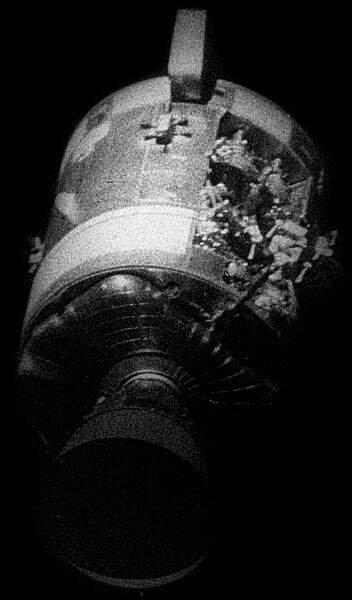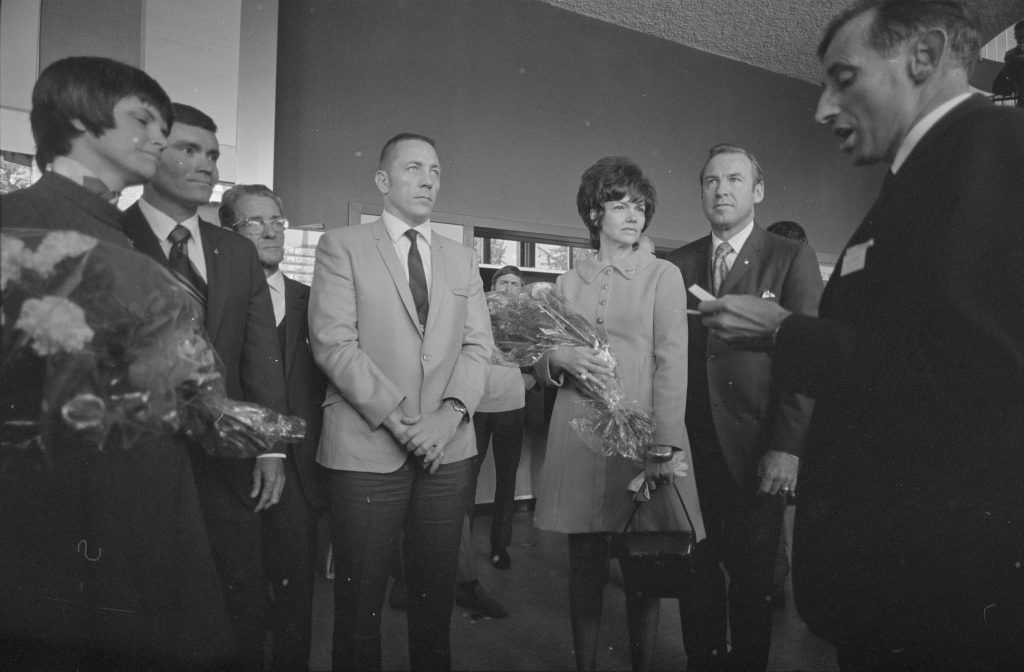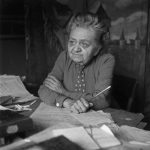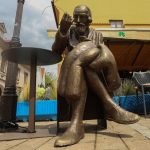January the 30th, 2024 – You’ve undoubtedly heard of Apollo 13, but have you ever heard of the Croatian connection? Here’s how Bjelovar’s own Mike Vučelić saved Apollo 13.
As zvono.eu/Miroslav Ambrus-Kis writes, on the 11th of April, 1970, three astronauts, James Lovell, Fred Haise and Jack Swigert completely detached themselves from the Earth’s gravitational pull and went up into the endless blackness of space. This was the seventh crewed mission in the Apollo space programme, and the third which had the intention of the craft landing on the Moon.
The risky launch on top of the powerful 117-metre Saturn V rocket took place. At that moment, the three astronauts felt the violent shaking of the rocket, which bends and stretches as if it were made of rubber under the pressure of unbelievably powerful engines. The correct orbit was obtained, and in it, the two-article composition connected with the LEM, which Lovell and Haise intended to use to land on the Moon, and dock with the command article to return in the conical capsule.
Just after starting the engine that directed them towards the Moon, more specifically 30 hours after launch, they reported live to a television programme back home. An exciting three-day voyage through space awaited them. Two days passed with all of the routine system checks, and on the third day, at 330,000 kilometres from Earth and about 70,000 kilometres from the Moon, Haise completed what’s known as a hot test. This was carried out to check that everything was working regarding the lunar article, and they signed off on the television link with Houston. Just as the day shift in Houston was about to be over, Croatian engineer Mike Vučelić took over.
“Houston, we have a problem!”

A mere 90 seconds after Swigert turned off the last switch during his routine check, the three astronauts felt a sudden explosion, with the electrical wiring in the spacecraft beginning to spark violently. The flight log recorded Swigert making unplanned call with the words that would later become famous worldwide: “OK, Houston, we have a problem!”. It was precisely Mike Vučelić who received that message.
In the spacecraft itself, all of the carefully designed and frequently checked instruments seemed to go wild, and Lovell, looking through the window, saw liquid being sprayed out into space. Terrifyingly, the liquid oxygen tank which was needed to “burn” the hydrogen in the fuel cells that provided the spacecraft with electricity had exploded. They were left without electricity needed not only for light in the cabin, but also for their life support system, heating and communication with Earth. Apollo 13 had failed the land on the Moon, instead circling it. The group needed to report one system which wasn’t functioning at a time back to Houston in order for a plan for their return to be carefully concocted.
“We only had four hours to figure absolutely everything out: we needed to work out what we had, how the astronauts might survive in the cold and without any electricity, whether they’d have enough oxygen to last them all the way back, and what they could even use as a means to return back to Earth. It was an accident that we couldn’t have simulated, and because of that, we couldn’t have even rehearsed a rescue,” Milojko Mike Vučelić revealed. He was one of those people who liked to recall those incredible events, because with each new round of retelling the story, he would remember another small detail or two.
“The most comfortable command post was out of order. The only one that still had charged batteries and had some kind of motor in it was the lunar article. It could have served as a rescue boat, otherwise the crew would have been in a hopeless situation like Major Tom in David Bowie’s song “Space Oddity”, only a much more unpleasant one, flying around in agony and awaiting certain slow death,” Mike Vučelić explained.
This Croatian scientist was the one who calculated the precise fuel capacity of the lunar article, as well as the the mass and power of the engine. He worked out what the required moment of its ignition should be, at the worst possible time – exactly when Apollo 13 was on the side of the Moon which isn’t visible, and when there was no communication with the crew on board the doomed vessel.
Who was Mike Vučelić?
Milojko Mike Vučelić was a Croatian engineer and scientist, born on June the 11th, 1930, in Garešnica. His family originates from the wider Ogulin area. He finished public school and the first seven grades of high school in Bjelovar, making him regard Bjelovar as his hometown. His son Alexander still provides scholarships to gifted Bjelovar high school students from Mike’s foundation.
He completed the last two years of high school in Zagreb, graduating in 1948. At the end of 1954, he graduated in aeronautics with the great Croatian aeroplane designer Rudolf Fizir.
“My lifelong friend Antun Cvjetković graduated alongside Fizir in the construction of the aeroplane we built – and that was smack bang in the middle of Zagreb! We literally took the wing out of the window from the first floor in today’s Frane Petrić Street, the street that connects Ilica and Bogovićeva next to the Ilica skyscraper. For my graduate thesis on that plane, I came up with a calculation for a wooden propeller, and then I made it. Fizir was satisfied, and fortunately that propeller was never mounted on that sports single-seater. It was powered by an engine from a Volkwagen beetle whose shaft rotated in the opposite direction to the way I designed it,” Vučelić joked.
From an illegal move to Germany to jumping across the pond to the USA
Both men were members of Aeroklub Zagreb, and he completed his gliding and piloting course in Vršac, then he worked as a technician at the club. Both of them then immigrated illegally to Germany, where they worked as engineers at Daimler-Benz in Stuttgart, before moving to Ford in Cologne one year later. Mike married psychologist Inga Perzl, and after two years in Germany, all three moved across the pond to the USA. They were first employed as designers at Cessna in Wichita, before moving to North American Aviation where Mike worked as a designer of pilot rescue systems for the F-104 Starfighter and B-58 Hustler aircraft.
North American, which became North American Rockwell after the merger, and then was swallowed up by the aviation and space giant Boeing, moved to sas, which is currently part of Boeing. North American had a contract with NASA for the manufacture of spacecraft for the Apollo programme, and the ever-ambitious Mike Vučelić participated in the executive phase of that programme as one of the flight control directors based in Houston.
The drama of Apollo 13, which could have been utterly tragic, miraculously ended happily and the capsule with the living astronauts splashed down in the Pacific on April the 17th. Waiting helicopters then transported the astronauts to safety. For his merits in rescuing the ill-fated astronauts, President Richard Nixon personally awarded Mike Vučelić the highest civilian award – the Presidential Medal of Freedom.
When keen journalists asked Mike what the most trying moment of that period was for him, he said: “Those of us who were on duty there were brought in plates of food. The worst moment was when I stabbed a sausage with a fork, and it splattered all over my tie. I thought: What is Inga going to say?!”
Tito hears about the heroic Mike Vučelić
Word soon spread about this remarkable Croatian engineer’s heroic actions across the former state (Yugoslavia). President Tito, naturally forgiving Mike for his youthful and not quite legal escape across the border as soon as he saw a use in him, invited him to meet him personally. Mike responded and spent a pleasant evening chatting with Tito. At one point, he asked him if he would return home and start the Yugoslav space programme.
“Not a chance, Yugoslavia doesn’t have that kind of money. It’s even expensive for the Americans!” Mike responded.
Houston, we have a problem! is a phrase known by generations, globally, but few realise that Croatia also had its own role to play in the forming of this famous expression.












